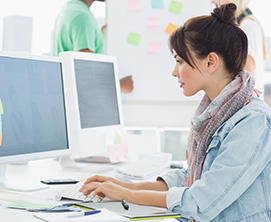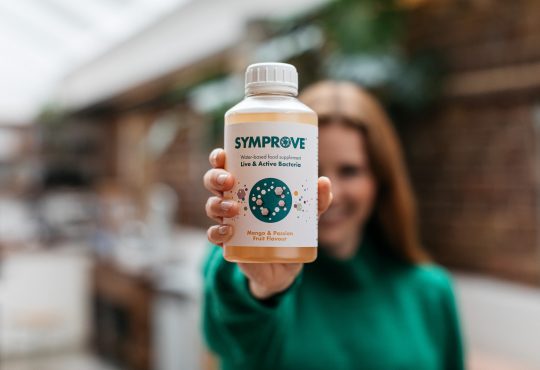
Are you eating your lunch at your desk, yet again, whilst planning your next meeting and at the same time trying to stay on top of emails? You’re not alone with 3 out of 5 workers admitting to being chained to their desk and not escaping the workplace for lunch. Sitting at your desk all day, staring at the screen, can severely impact your health.
Our experts share their top tips to give your wellbeing a boost, especially when you don’t have the chance to take a full lunch break.
1. Make a packed lunch
To save time in your working day skip buying lunch from the high street and bring something pre-made from home. “Not only will you be saving big bucks, but you also have the chance to wave good-bye to salt and sugar ladened high street lunches. Packed lunches give you full control over the quantities of each food group that you add to your plate as well as the calorie content, which is a massive plus point.
“High street lunches rarely provide you with enough veg, fibre and good quality protein to keep hunger at bay and blood sugar levels stable throughout the afternoon. A great blood-sugar balancing lunch is essential for preventing that post-afternoon energy slump as well as keeping hunger at bay,” explains Lily Soutter, Nutritionist at Lilysoutternutrition.com.
2. Avoid the ‘cake culture’
If you’re yet to head out for a break from the delicious wafting smells reaching your desk, perhaps chocolate cookies from the office’s ‘weekend baker’ or ‘congratulation’ doughnuts from the boss, then you may be more likely to cave into eating calorific snacks. A table of sugary treats is commonplace in many offices and research from the Royal College of Surgeons suggests that this cake culture is fuelling obesity and dental problems.
To help you resist joining your peers delving into naughty snacks reach for your Slissie. Slissie (from £39.99, www.slissie.co.uk), is the first of its kind as it helps to curb cravings with flavourings that instantly help you resist snack temptation. Slissie releases tasty, appetite-suppressing flavours, from vanilla to chocolate, which can help you resist eating things you know you really shouldn’t.
 3. Top up your vitamin D levels
3. Top up your vitamin D levels
Spending short periods of time in the sunshine is a great way to top up your vitamin D levels, but for those who are unable to venture outside on their lunch break it is important to look at other ways of getting the sunshine vitamin. “You can
get some vitamin D from foods such as butter and oily fish, but it’s not really enough. The best way to get vitamin D is from spending lots of time in the sun, but if this is not an try taking a supplement, such as Vega Vitamins Everyday-D 10g (from £5.95 www.vegavitamins.co.uk), which is available in a tasty orange spray, or as blackcurrant chewable tablets (100s and 500s),” says Nutritionist, Cassandra Barns.
4. Stay hydrated
Even if you’re swamped with work, remember to drink plenty of water. “Focusing on our water intake is absolutely essential for health.
5. Up your daily steps
When possible, take a walk out at lunch to stretch those legs and up your steps, but if you’re struggling to fit this in the odd day Podiatrist Dave Wain, at Carnation Footcare has some suggestions; “Change your route to work. Even by adding an extra 5 minutes, you’ll up your step count. I’d also suggest if you’re a bit of a desk jockey, set a reminder to make sure you have a brief walk around the office to get yourself moving and always opt to take the stairs.”
6. Take your eyes off the screen when eating
“It is important for our digestive systems to sit up straight whilst eating and eat slowly. If you want to enjoy your food make sure you look at it whilst you are eating and take the time to savour the flavours. Eating slowly will also give your body time to release something called cholecystokinin (CCG). This is also known as the “full up” signal. Once your body receives this signal, you should realise that you are full up and stop eating. It is thought to take at least 20 minutes to be released though so eating slowly is important,” says Shona.
7. De-stress by writing a to-do list
Don’t have the time to clear your head on your lunch break? Help yourself feel more calm and collected by writing a to-do list. “If you feel the symptoms of stress coming on, learn to get your priorities right. There is nothing in your life right now more important than your health. Learn to say no if you feel that you have taken on too much. Being assertive is invigorating and empowering. It also helps to make lists of what is, or is not a priority, and to tackle the priority tasks first. This will help give you a sense of control over your life,” says Dr Marilyn Glenville, the UK’s leading Nutritionist (www.marilynglenville.com) and author of Natural Alternatives to Sugar.
8. Don’t eat when you’re stressed
Had a stressful meeting? Avoid heading for the biscuit tin, or speeding your way through your lunch straight away. “Never eat when you are stressed, feeling emotional or in a rush. Take time to sit down at the table and eat slowly and calmly. Try to avoid being over-talkative at lunch. By focusing on conversation rather than the eating, this may interfere with the digestive process. It’s also important to chew properly, at least 30 times each mouthful,” says Shona.
9. Have a spring clean
Desks have been known to harbor 400 times more bacteria than the average toilet seat, which is stomach churning – especially for those who eat at their desks! Try to spare five minutes a day to give your des
10. Embrace fidgeting
Are you naturally someone who feels like they constantly have to move, whether that’s simply tapping your foot, or swinging on your chair? This could actually help you burn calories, according to research, so even with a busy schedule you could be exercising without even realising!









